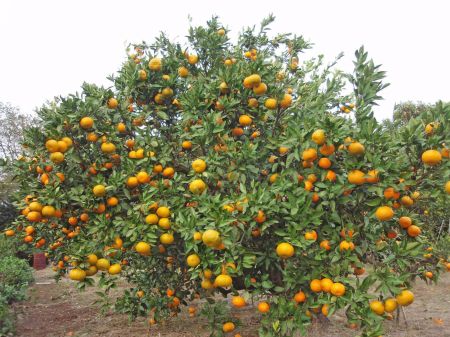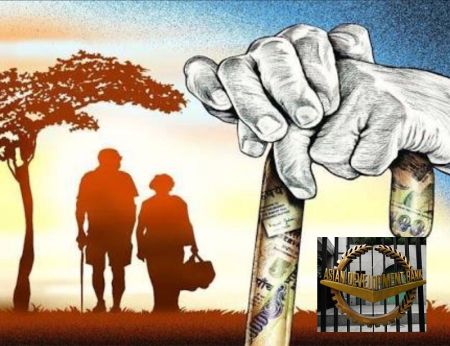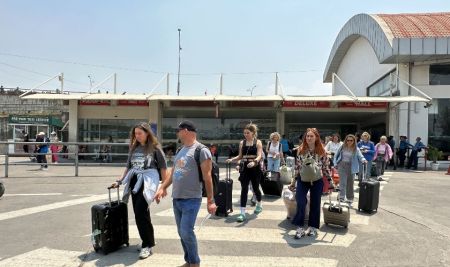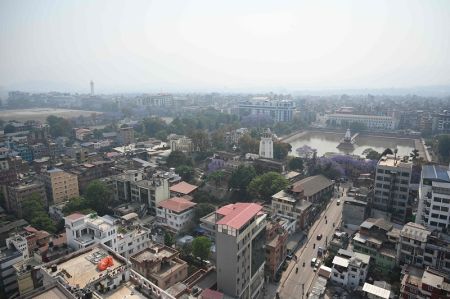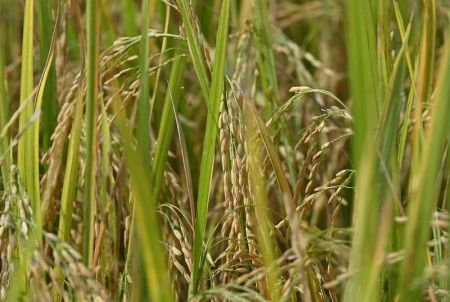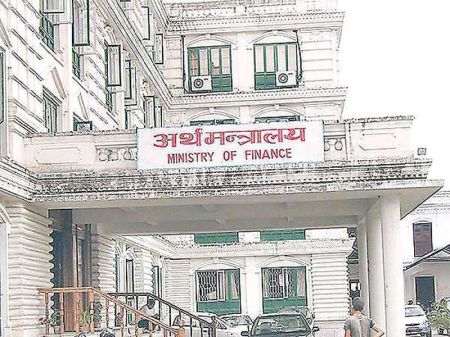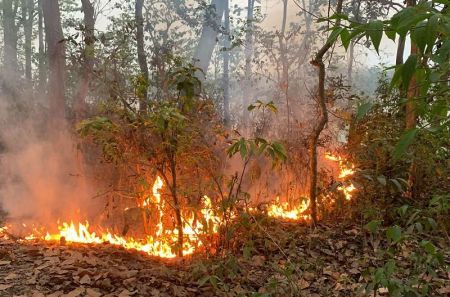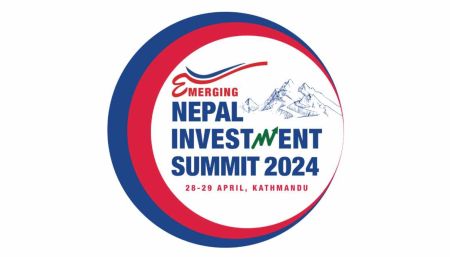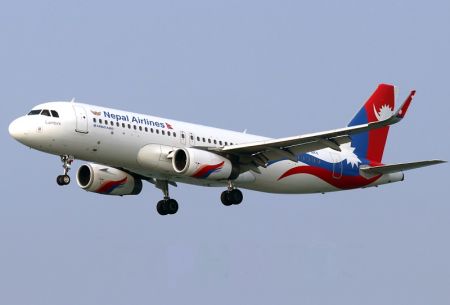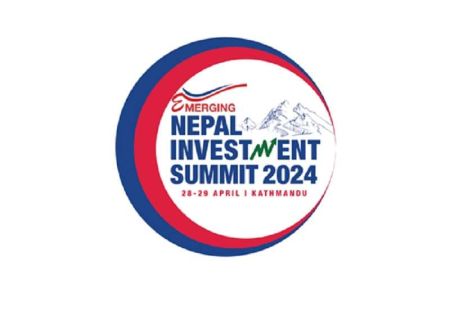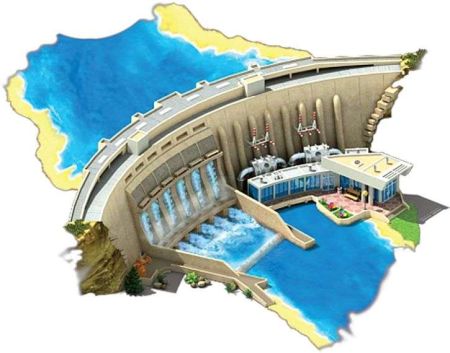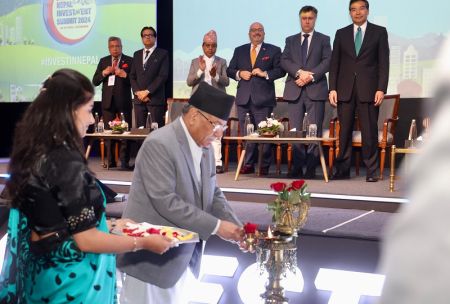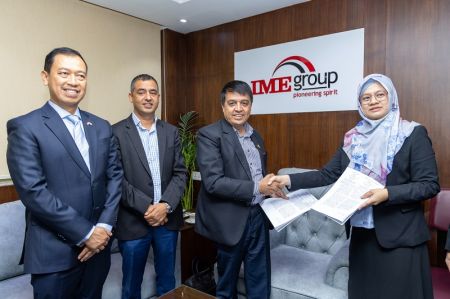(2).jpg)
--By Gaurav Aryal
Danish development assistance to Nepal has embarked on a new track with the signing of two new five-year development programmes. The Ambassador of Denmark to Nepal, Kirsten Geelan, and Shanta Raj Subedi, Secretary of the Ministry of Finance, signed on these two agreements on December 16, 2013. These new programmes have a budget of nearly USD 110 million.
Denmark provides development assistance and humanitarian aid to developing countries under the umbrella brand Danish International Development Agency (DANIDA) that remains under the Ministry of Foreign Affairs of Denmark. With this strategy new programmes are being launched on peace, rights and governance, inclusive green growth as well as research and culture and development.
Continuing Peace, Human Rights and Good Governance
Denmark has been supporting human rights and good governance in Nepal since the early 1990s, and from 1998 through a programme of Human Rights and Good Governance. Phase III of the programme ends in 2014.The peace support programme that started in 2009 had a budget of DKK 170 million for five years. The programme was implemented with three components namely support for democratisation of political institution and promoting public debate on democracy, human rights and legal protection and support for local governance.
Similarly, the Peace Support Programme with a budget of USD 15 million for its third phase , provided support to various national actors such as Nepal Peace Trust Fund (NPTF), the UN Peace Fund for Nepal (UNPFN), national NGOs and INGOs such as Search for Common Ground, International Alert, and Saferworld.Geelan says that Denmark had worked actively as a key player in Nepal’s peace building process. She adds that Danish support was instrumental in the successful integration of Maoist combatants into the Nepali Army. Similarly, Denmark also established a close partnership with the Election Commission and supported the recent Constituent Elections. “We have worked and will continue to work with civil society organisations with regards to human rights. We have seen improvement in gender rights, opportunities and gender equality and improved situation of marginalised groups, particularly Dalits,” shares Geelan.
With the new five-year programme for sustainable peace, human rights and good governance we aim to continue and build on our achievements of previous years. The new programme with a budget of USD 36 million aims to promote and protect democratic principles and basic human rights for the citizens of Nepal. The new programme is aligned with the Comprehensive Peace Accord and Interim Development Plan with respect to sustainable peace and equitable growth, strengthening economic and social services as well as good governance and effective service delivery. Through strengthened collaboration between government, state institutions and civil society and promoting ownership and leadership in Nepal, the programme will focus on peace building and democratic development, local governance and access to justice.
Inclusive and Green Growth Programme
With our new programme on inclusive growth for 2013-2017,we will be supporting the commercialisation of value chains in Eastern Nepal. Geelan says that this programme will prioritise tea, ginger and dairy farming in seven districts in the Eastern part of Nepal by strengthening the value chain. With the new programme we will be entering into a new sector with a budget of USD 73 million. The programme is named UNNATI, meaning ‘prosperity’ and ‘progress’ in Nepali.
Geelan says that these programmes are closely aligned with the national priorities and agenda of Nepal .The programme is working with both the government and private sector to enhance the business environment.Thenew Denmark-Nepal policy paper focuses on green and inclusive economic growth through supportingthe development of agricultural value chains, rural infrastructure, improving access to renewable energy in rural areas, etc.“Both the public sector as well as the private sector will be key partners in the new inclusive growth programme, and we look forward to working together to strengthen market-based inclusive growth and reduce poverty in Nepal,”underlines Geelan.
Developing Renewable Energy
More than one million households have been benefitted from the Danish supported programme on renewable energy to accelerate access to renewable energy technologies in Nepal. According to the Embassy, five million people from one million households have received support to renewable rural energy technologies. In addition to green energy projects having mobilised billions of rupees and increased local investment in the renewable energy sector. As well as improving the health of in particular women and children and creating green jobs.
The Danish support to the energy sector in Nepal began in the late 1990s. The National Rural Renewable Energy Programme 2012-2017 is working with national partners like Ministry of Science and Technology and Environment and Alternative Energy Promotion Centre and several Development Partners to develop the renewable energy sector in Nepal.
The Danish support is mainly focussing on small-scale hydropower projects and solar energy utilisation. Similarly, the Danish supportincludes clean energy technologies such as improved cooking stoves, biogas, solar panels to households, and micro-hydro installations in areas where there is no access to the national electric power network. Over the years Denmark has contributedUSD40 million to this programme.
While there might be possibilities for Danish investors to become involved in developing large hydropower plants, the Danish activities have up until now been designed to improve the livelihood and economy of local communities.
Strengthening Denmark-Nepal Relationships
Nepal became a priority country for Danish development assistance already in 1989 and over the years a long-term partnership has developed. Through this partnership, Denmark has been contributing to poverty reduction, political stability and to strengthening inclusive economic growth and access to renewable energy. Denmark provides approximately USD 36 million in development assistance to Nepal each year, and will be launching a new cultural programme together with the Danish Institute for Culture and Development and a new research programme. This is in addition to the Danish Business Partnership programme, where we hope with a match making event later in the year to be able to strengthen further business collaboration between our two counties.
In the early 1990s, Denmark provided substantial support to community forestry and natural resource management working with local communities establishing user groups and handing over the user rights to local communities as well as strengthening local government and accountability, says Geelan. “Later we became involved in the dairy sector establishing cooperatives at national and local level. Over the years our engagement has evolved from simple project activities to bigger and more complex, joint and coordinated programmes covering several sectors in Nepal,” explains Ambassador Geelan.





